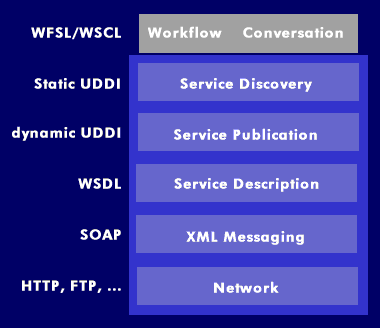universal description, discovery and integration (E-Commerce) (UDDI)
Universal Description, Discovery and Integration (UDDI) is a description standard for electronic commerce on the Internet that was developed by IBM, Microsoft and Ariba and brought in for standardization. The goal of UDDI is to establish a central, platform-independent registry of companies offering Web services.
UDDI provides a directory of address and product data for e-business. As many companies as possible (businessEntity) should register in this register with the products and services (businessServices) that can be accessed via the Internet. In addition, precise information is required on how a described service (bindingTemplate) can be called. The directory also includes the protocols and application interfaces used by a web service. With this information, a potential user can assess whether a particular Web service can be coupled with his business processes.
UDDI is based on World Wide Web Consortium(W3C) standards such as Extensible Markup Language (XML), HTTP, the Domain NameSystem( DNS), and Simple Object Access Protocol( SOAP), and provides a directory service for Web services via the SOAP interface. An example of such UDDI-based services are the Yellow Pages( YP).
The UDDI specifications are managed by the Organization for the Advancement of Structured Information Standards( OASIS).

